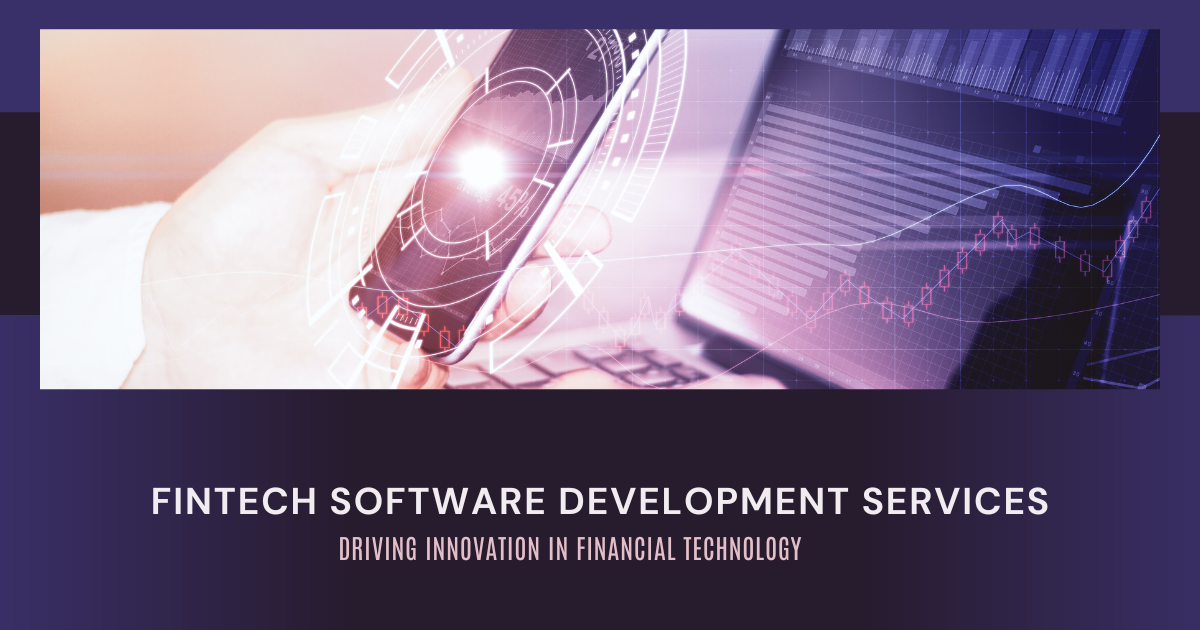Fintech software development services: Driving innovation in financial technology
Money has gone digital. The financial world is experiencing its most radical transformation since the invention of paper currency, powered by cutting-edge FinTech software development. Traditional banking models are being disrupted as financial technology services create unprecedented opportunities for businesses and consumers.
- The global FinTech market was valued at $340.10 billion in 2024
- Projected to reach $394.88 billion in 2025
- Expected to grow to $1,126.64 billion by 2032
These staggering numbers from FinTech market statistics reveal an industry in hypergrowth. Technologies like blockchain technology and AI in finance have moved from experimental concepts to essential infrastructure, fundamentally changing how money moves and grows.
Core components of modern FinTech solutions
The engine behind financial innovation
FinTech software development is the foundation for today’s most disruptive financial technologies. Developers create specialized solutions that address critical industry needs:
- Payment gateway solutions that process transactions in milliseconds
- Fraud detection systems powered by machine learning algorithms
- Automated investment platforms using predictive analytics
- Secure digital identity verification systems
Key technologies powering FinTech advancements
Three technological pillars support modern financial technology services:
- Blockchain Technology
- Enables decentralized, transparent transaction records
- Reduces settlement times from days to minutes
- Eliminates intermediaries in peer-to-peer transactions
- AI in finance
- Processes vast datasets to detect spending patterns
- Automates risk assessment for loan approvals
- Powers intelligent chatbots for customer service
- Digital banking services
- Mobile-first banking platforms
- Biometric authentication systems
- Real-time financial management tools
Current trends reshaping the FinTech landscape
1. The mobile-first banking revolution
Digital banking services have moved beyond simple transactions to comprehensive financial management platforms. Modern banking apps now offer:
- Instant balance notifications
- AI-driven spending insights
- Seamless peer-to-peer payments
- Integrated investment options
2. Blockchain's expansion beyond cryptocurrency
While initially developed for digital currencies, blockchain technology now supports:
- Smart contracts for automated agreements
- Supply chain financing solutions
- Secure medical record storage.
- Digital identity verification systems
3. Ai-driven personalization in financial services
AI in finance enables hyper-personalized experiences through:
- Dynamic credit scoring models
- Predictive cash flow analysis
- Automated portfolio rebalancing
- Real-time fraud monitoring
4. Next-generation payment solutions
Modern payment gateway solutions incorporate the following:
- Tokenization for enhanced security
- Cross-border transaction capabilities
- Integrated loyalty programs
- Cryptocurrency payment options
Emerging opportunities in FinTech development
Untapped markets for financial inclusion
FinTech solutions can address banking needs for:
- Underbanked populations in developing nations
- Small and medium enterprises needing capital
- Freelancers requiring flexible financial tools
Convergence with other industries
Innovative applications of FinTech software development are emerging in:
- Insurtech (usage-based insurance models)
- PropTech (digital mortgage processing)
- WealthTech (automated investment platforms)
- RegTech (compliance automation tools)
The FinTech revolution shows no signs of slowing, with FinTech market statistics projecting continued strong growth through 2030. Success in this dynamic field requires the following:
- Continuous monitoring of the latest FinTech news and trends
- Strategic investment in FinTech software development
- Balancing innovation with regulatory compliance
- Prioritizing cybersecurity in all digital banking services
Businesses that effectively leverage blockchain technology, harness the power of AI in finance, and implement robust payment gateway solutions will lead the next wave of financial innovation. The future belongs to organizations that can transform these technological advancements into practical, user-friendly FinTech solutions that solve real economic challenges.
Connect with Novas Arc—we modernize fintech operations through digital transformation strategies, build industry-focused application development services, keep systems efficient with middleware and integration solutions, and apply automation and AI to improve fintech performance.
FAQs
- What is FinTech software development?
FinTech software development builds digital solutions for financial services, including mobile banking, payment gateways, fraud detection, and blockchain-based systems. It powers faster, smarter, and more secure money management.
- How is AI used in FinTech?
AI improves fraud detection, automates loan approvals, analyzes spending patterns, and powers chatbots for customer service. It helps financial services become faster and more personalized.
- Why is blockchain important in FinTech?
Blockchain enables secure, transparent transactions without intermediaries. It speeds up settlements, supports smart contracts, and expands beyond cryptocurrency into digital identity and supply chain finance.
- What are the biggest challenges in FinTech adoption?
Key challenges include:
- Keeping up with changing regulations (GDPR, AML, KYC).
- Preventing cyber threats like hacking and phishing.
- Integrating new FinTech tools with old banking systems.
- What trends are shaping FinTech’s future?
Major trends include:
- Mobile-first banking with AI-driven features.
- Blockchain for secure contracts and identity verification.
- Advanced payment solutions supporting crypto and cross-border transactions.
- Expansion into underbanked markets and industries like insurance and real estate.
Author








